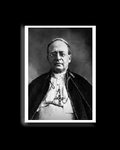The Significance of Distributism
An excerpt by George Maxwell
Human labour has two purposes. One essential and permanent, the other incidental and transient. The essential end is to develop and perfect himself as a person. The transient end to enable him to earn his living.
When free men meet together for the purpose of producing shoes or anything else, they do not shed their dignity as "persons" or as responsible social beings ruled by justice and charity. The specific objective of their work is the making of shoes or whatnot, but the principle objective is the perfection of the person in union with other persons. Under industrialism it is the reverse. Is this one of those things of which Mr. Chesterton said: "You may look at it 999 times and not see it. If you look at it the 100Th time you are in grave danger of seeing it for the first time."
The second factor in Distributist policy is the restoration of property. By property I mean the effective ownership and control of the means to exercise liberty. The essential means for responsibility. A homely illustration will, I think, suffice to show its necessity. You will have heard it said that, "No kitchen was ever built big enough to hold two women." Its a generalisation and the idea underlying the saying is, I believe, true - and trust that it will remain so. Here is the commonest though noblest of all craftsmen - the maker of the home. She takes for granted that her workshop, her workbench, her tools, her policy and the tempo of her work shall be in her sole control to order as she wishes. Her responsibility. Any attempt to interfere with this control by whomsoever it may be, is met at once by opposition. Her defences are called into play and are usually effective and sometimes subtle, such as would put the T.U.C. to shame. Nevertheless when the need arises she understands the need for charity and in these days she is not wanting. This theme could be developed more but it should not be necessary.
Had men insisted on keeping the ownership and control of their tools as she has, insisted on responsibility in their work to anything like the same extent, the position to-day would be different. But a fifth column is active against the home in all sorts of ways. The philosophy of Distributism is the only one I know which can counteract this. The only one I know which embraces the personal and social life of the whole man. Its chief significance lies in that everyone, in no matter what circumstances can move towards its goal. It may be very shortly and with halting steps, but so long as one is moving in the right direction then a path is being made to make it easier for others whose steps may be still more faltering, but willing to move to restore the lost culture of Christianity to men and to England.
As things are at present, to some there may be a temptation to rewrite in the mind the Gospel of St. John, to read "In the beginning were the circumstances, and the circumstances are with us, and the circumstances are omnipotent." This is despair and by definition this is mortal sin. Take consolation from that, because if it is mortal sin, it can't be necessary. The service of truth will bring Freedom, and Truth is not a concept of the mind, but a 'person.'
Taken from The Distributist
Thursday, August 23, 2007
Subscribe to:
Post Comments (Atom)
















No comments:
Post a Comment